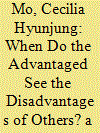| Srl | Item |
| 1 |
ID:
176808


|
|
|
|
|
| Summary/Abstract |
We analyze the impact of the unconditional cash transfer program, namely the Benazir Income Support Program (BISP) on fuel choices among ultra-poor in Pakistan using two rounds of household-level data collected in 2011 and 2016. The analysis based on regression discontinuity design shows that BISP cash transfer has a significant impact on interfuel substitution. Cash transfer increases the use of modern fuels among BISP beneficiaries. Besides, cash transfer also encourages the use of intermediate fuels, even in some cases traditional fuels. Cash transfer also increases the share of fuel expenses in total household expenses. Therefore, the fuel stacking theory provides a better explanation of interfuel substitution than the energy ladder theory of the cash transfer program. The provincial analysis shows that interfuel substitution exists due to cash transfer but varies from province to province, signifying the role of regional heterogeneities. The net impact on fuel choices may depend on the availability of different fuel components. From policy perspective, the expansion of the cash transfer program, as planned by the government, would require a reasonable investment in the energy sector to ensure an uninterrupted supply of modern fuels.
|
|
|
|
|
|
|
|
|
|
|
|
|
|
|
|
| 2 |
ID:
162206


|
|
|
|
|
| Summary/Abstract |
Are there mechanisms by which the advantaged can see the perspectives of the disadvantaged? If advantaged individuals have prolonged engagement with disadvantaged populations and confront issues of inequality through national service, do they see the world more through the lens of the poor? We explore this question by examining Teach For America (TFA), as TFA is a prominent national service program that integrates top college graduates into low-income communities for two years and employs a selection model that allows for causal inference. A regression discontinuity approach, utilizing an original survey of over 32,000 TFA applicants and TFA’s selection data for the 2007–2015 application cycles, reveals that extended intergroup contact in a service context causes advantaged Americans to adopt beliefs that are closer to those of disadvantaged Americans. These findings have broad implications for our understanding of the impact of intergroup contact on perceptions of social justice and prejudice reduction.
|
|
|
|
|
|
|
|
|
|
|
|
|
|
|
|